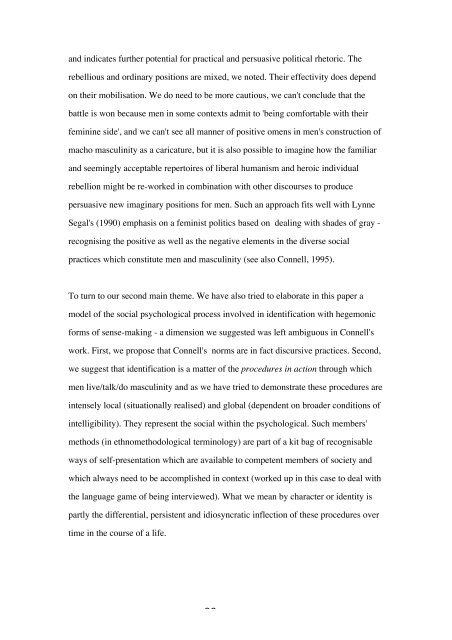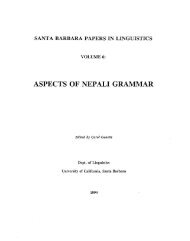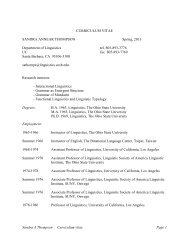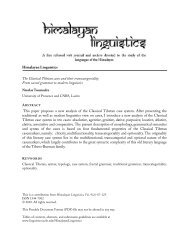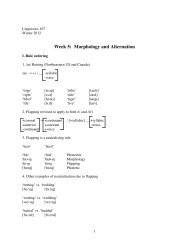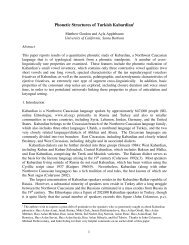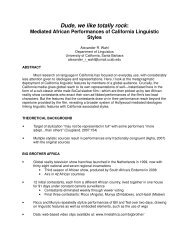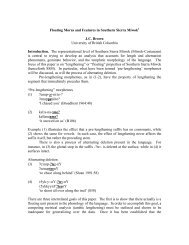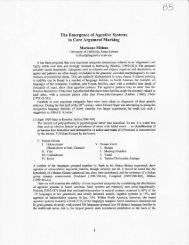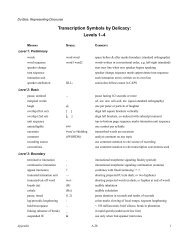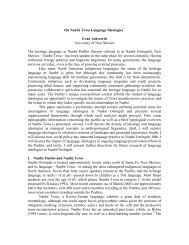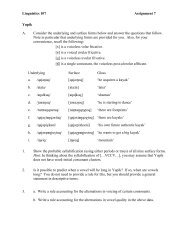Negotiating Hegemonic Masculinity: Imaginary ... - UCSB Linguistics
Negotiating Hegemonic Masculinity: Imaginary ... - UCSB Linguistics
Negotiating Hegemonic Masculinity: Imaginary ... - UCSB Linguistics
Create successful ePaper yourself
Turn your PDF publications into a flip-book with our unique Google optimized e-Paper software.
and indicates further potential for practical and persuasive political rhetoric. The<br />
rebellious and ordinary positions are mixed, we noted. Their effectivity does depend<br />
on their mobilisation. We do need to be more cautious, we can't conclude that the<br />
battle is won because men in some contexts admit to 'being comfortable with their<br />
feminine side', and we can't see all manner of positive omens in men's construction of<br />
macho masculinity as a caricature, but it is also possible to imagine how the familiar<br />
and seemingly acceptable repertoires of liberal humanism and heroic individual<br />
rebellion might be re-worked in combination with other discourses to produce<br />
persuasive new imaginary positions for men. Such an approach fits well with Lynne<br />
Segal's (1990) emphasis on a feminist politics based on dealing with shades of gray -<br />
recognising the positive as well as the negative elements in the diverse social<br />
practices which constitute men and masculinity (see also Connell, 1995).<br />
To turn to our second main theme. We have also tried to elaborate in this paper a<br />
model of the social psychological process involved in identification with hegemonic<br />
forms of sense-making - a dimension we suggested was left ambiguous in Connell's<br />
work. First, we propose that Connell's norms are in fact discursive practices. Second,<br />
we suggest that identification is a matter of the procedures in action through which<br />
men live/talk/do masculinity and as we have tried to demonstrate these procedures are<br />
intensely local (situationally realised) and global (dependent on broader conditions of<br />
intelligibility). They represent the social within the psychological. Such members'<br />
methods (in ethnomethodological terminology) are part of a kit bag of recognisable<br />
ways of self-presentation which are available to competent members of society and<br />
which always need to be accomplished in context (worked up in this case to deal with<br />
the language game of being interviewed). What we mean by character or identity is<br />
partly the differential, persistent and idiosyncratic inflection of these procedures over<br />
time in the course of a life.<br />
32


